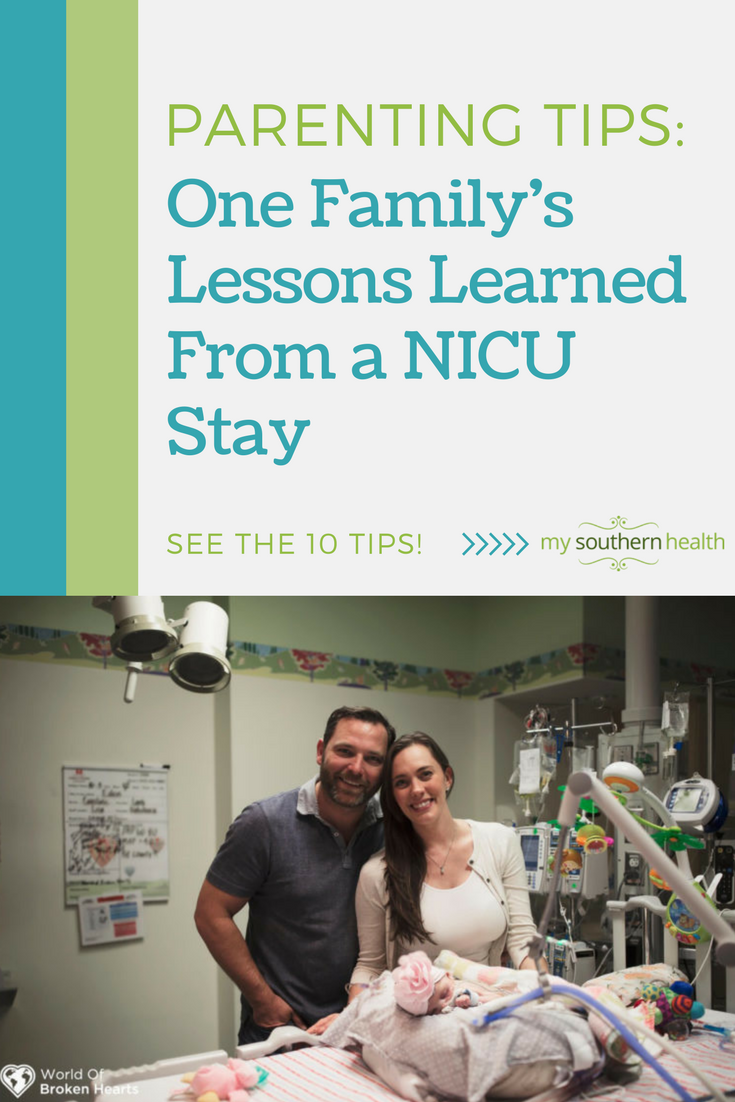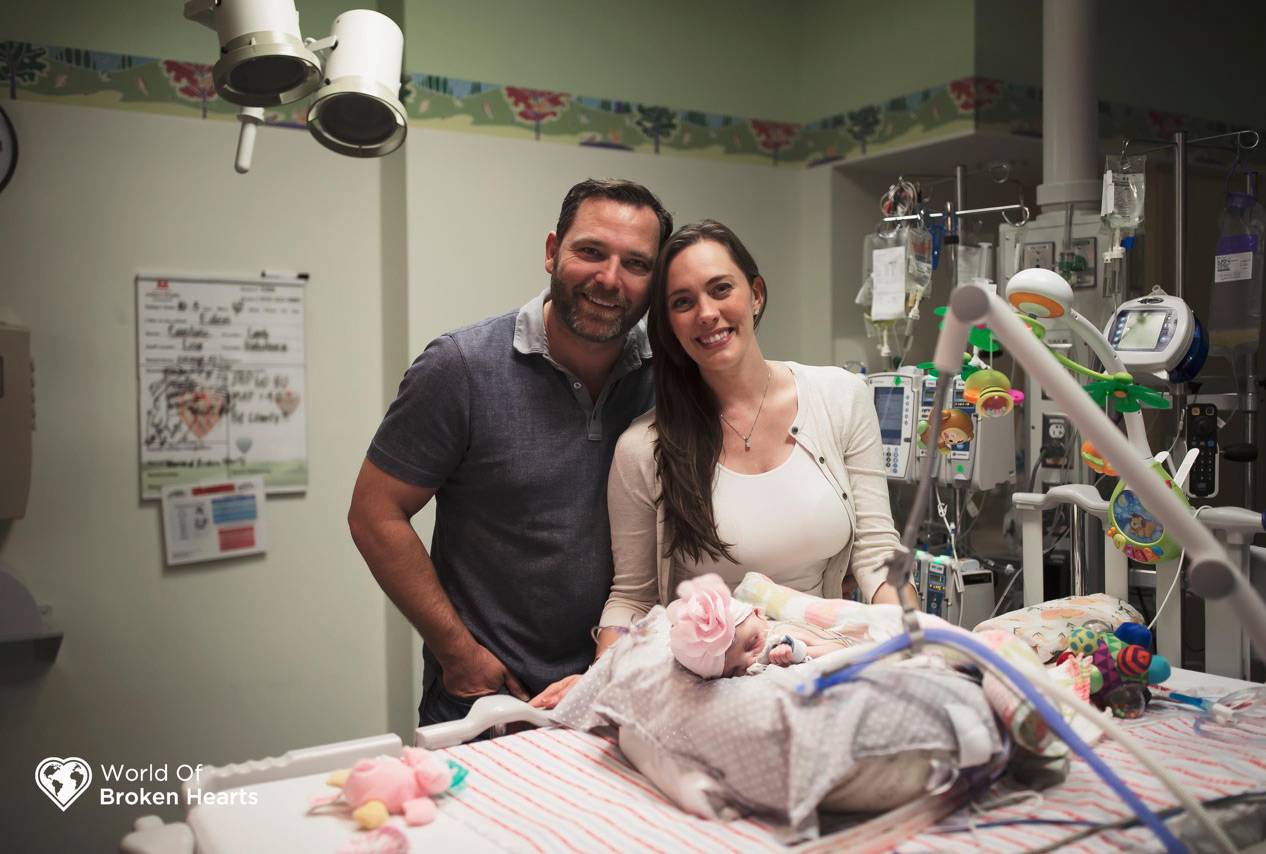After 9 1/2 months in the hospital with his newborn daughter, a father shares strategies for families coping with long inpatient stays.
My wife and I had a measure of difficulty in getting pregnant. After three years, 14 intrauterine insemination treatments, two rounds of in vitro fertilization and a surgery, we were overjoyed to find we had been blessed with a pregnancy.
For a few weeks we were told to expect twin girls. We told our parents and enjoyed the pregnancy. After a few more weeks, we were told that both embryos had stopped developing and we were not going to have a baby. Then a week later we were told one embryo would survive. At our 20-week visit, our doctors found pulmonary artresia, which is a heart defect. At seven months, we got the news that our little girl also had a severe case of major aortopulmonary collateral arteries (MAPCAS), a 60 percent chance of living after birth and a 50/50 shot at living more than a few years.
We were told to expect a hospital stay of two to three weeks after birth. The estimates grew longer through reintubations and surgery. At day 64, she was stable and we tried not to develop an expectation for when we’d get home.
We spent more than 9 and a half months in the PCICU in the first 10 months of Eden’s life. Rolling with these changes in expectations and staying mentally, emotionally and physically healthy was challenging.
Early in our stay, I was discussing how to cope in a healthy way with a Neonatal Intensive Care doctor on rounds. I said, “You’ve seen thousands of families go through this process. Some do well, some don’t. What are the traits of families that do well versus families that don’t?” I asked this question to many doctors and nurses.
The following are the habits my wife and I developed that have been helpful:
1. Set up a shift system.
Each day of the week we have shifts to be with our daughter. With this system we also decided that if a person couldn’t take a shift that was OK. We were not going to beat ourselves up if we couldn’t make it. We found that we had to wean ourselves more and more, the longer we stayed. By week eight, we were doing 3-hour shifts per person per day with most of the weekend covered by one of us so the other could take time off.
2. Make time for exercise.
Each day, we made an effort to walk outside for 45 minutes. Most of these walks ended at an ice cream shop.
3. Have a daily huddle.
Each morning, we both would say a prayer together and then ask if the day’s shift was doable. Some days, we needed more rest; some days, one of us could take the other’s shift.
4. Remove any non-critical tasks.
We burned through some savings to keep the day-to-day tasks off our plate. We outsourced tasks like cleaning our home, walking our dog and washing our clothes, and used Uber Eats for meals. My wife and I were so blessed to have so many helpful friends and family show us love and support. We made good use of a meal train (online software helps automate this). We found that outsourcing anything we could was helpful.
5. Prioritize sleep.
Both of us felt an alarm clock should not be set unless absolutely needed for an event like a surgery. Some days we would sleep longer than we usually would. This was probably due to emotional fatigue.
6. No alcohol.
I don’t do well with alcohol when I’m under lots of stress. This decision helped me to keep my energy high, allowed me to drive anytime needed and kept my emotional state more settled with fewer peaks and valleys.
7. Foster communication.
We set up a weekly consult with our medical team so we could sit down for 15 minutes and get a complete picture of what the whole team was thinking for the week’s strategy. This helped us understand the reasoning behind day-to-day decisions made in rounds. One the hardest aspects of this process was dealing with the almost complete lack of control in one of the most important things we’ll ever do. The most important decision we made was to trust our healthcare team.
8. Consider counseling.
During the third trimester of our pregnancy we began meeting with a counselor on a weekly basis. We’ve continued this throughout our ICU stay as it’s a great way to be proactive with our mental states both individually and as a couple. Depression is very common for mothers with children in ICU who are also under the stress of postpartum changes. We specifically focused on the threat of depression and are ready to adapt if that illness strikes.
9. Manage your guilt.
We found it difficult not to feel a sense of guilt during this process. Guilt for not being at the hospital. Guilt in the way we compared ourselves to other family’s “successful” or “normal” pregnancy. Our response to this was in trying to intentionally recognize our feelings and address them with each other in an attempt to manage and reduce our negative emotional responses.
10. Remember what is important to you.
We found the following two tenets helpful in keeping a healthy mental state. We tried to focus on the many ways we are blessed to be where we are, and we tried to see each day with our daughter as a blessing. We acknowledged that this is our path. Expectation is the root of all disappointment. Comparison is the thief of joy. It was very destructive for us to compare and compete with the experiences of our friends, most of whom had healthy children.
Our ICU experience has been the most challenging thing we’ve ever been through. Every parent has a unique set of challenges and opportunities. We hope sharing our experience is helpful in making your experience a little less stressful and a little more healthy and bearable.
This post was written by Brad Hill, who is a Nashville-based entrepreneur, husband to Elisa and father to baby Eden who was born in August 2017.


